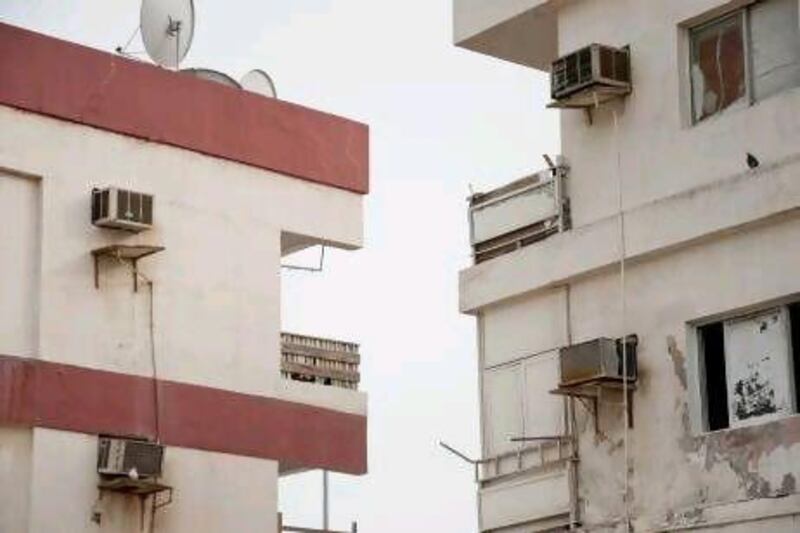A scheme designed to reduce energy consumption by informing shoppers about the efficiency of air-conditioning units has been delayed, The National has learnt.
Air-conditioning units, large and small, represent the country's largest energy drain, consuming 70 per cent of all electricity.
The initiative, aimed at requiring manufacturers to display labels with the efficiency ratings of their window and split-unit air conditioners, was to start at the beginning of this year.
Designed by the Emirates Authority for Standardisation and Metrology (Esma), the scheme rates window and split-unit systems from one, the least efficient, to five, the most efficient. The rating was to be indicated on a sticker to be placed on the outer packaging of each unit.
However, a recent spot check by The National showed that very few devices on the market have the new stickers. From about 20 models on sale at Sharaf DG in Times Square Centre in Dubai, only one had a label. A product of OGENERAL, which manufactures its devices out of India, had the highest rating of five stars. Units sold under the LG, Whirlpool and Hitachi brands at the store were all lacking labels.
At Carrefour in Dubai's Mall of the Emirates, a sales assistant was baffled by a question about the efficiency ratings.
"They are all the same, madam," he said, pointing to the devices and explaining that they are manufactured by reputable brands such as LG and Hitachi.
He said his customers rarely inquired about the energy efficiency of the units they purchased.
After repeated questioning from a reporter, the sales assistant consulted two colleagues, then showed a catalogue for a unit by Cooline, a Saudi brand, which he said was more efficient because it had a better compressor.
He presented no information on how the device was ranked in the Esma scheme.
Esma officials did not respond to repeated requests for comment.
In Abu Dhabi, Ahmed, an Emirati, said he was not aware of the scheme. However, upon hearing some details, he said it could help people make the right choice and should be advertised more prominently among shoppers. He usually considered durability and price when buying electric appliances, he said.
Hursh Agrawal, general manager at Hitachi Consumer Marketing Middle East, acknowledged the delays but said they are temporary. Since January this year, he said, the company changed their AC models to meet the new standards.
"Most of the models with labels have already been shipped. It is only a logistic issue when they will appear on the shelves," he said. "It depends on the retailers."
Mr Agrawal said the labels were missing from Hitachi products in the two shops because some stores had old stocks and were trying to sell them before showing the new models. In addition, the display units may be "mock-up" units that do not actually work, he said.
More must be done to educate customers that investing in costlier but more efficient appliances pays off in the future, he said.
"As per our understanding, customers are not very much 'aware' of energy-saving issues be it electricity, water or other resources," he said. "However, when these are explained to them, they understand and support this cause."
DY Kim, the president of LG Electronics for the Gulf, was more optimistic about consumer attitudes, saying the company was already seeing a shift. "Customers in the UAE understand that energy efficiency has a crucial importance and therefore they are taking the responsibility to act, especially given the overall consumption of electricity throughout the UAE, particularly through usage of air-conditioning units," he said.
The company's products have already been rated by Esma and are awaiting the receipt of the new stickers, he said.
"Currently, our documents are under process with the Esma authority and we are waiting for the authorities to release the energy labels," he said.
"Once we get the labels, we will implement the same as soon as possible so that consumers can be aware of the EER [the efficiency rating] of the product".





